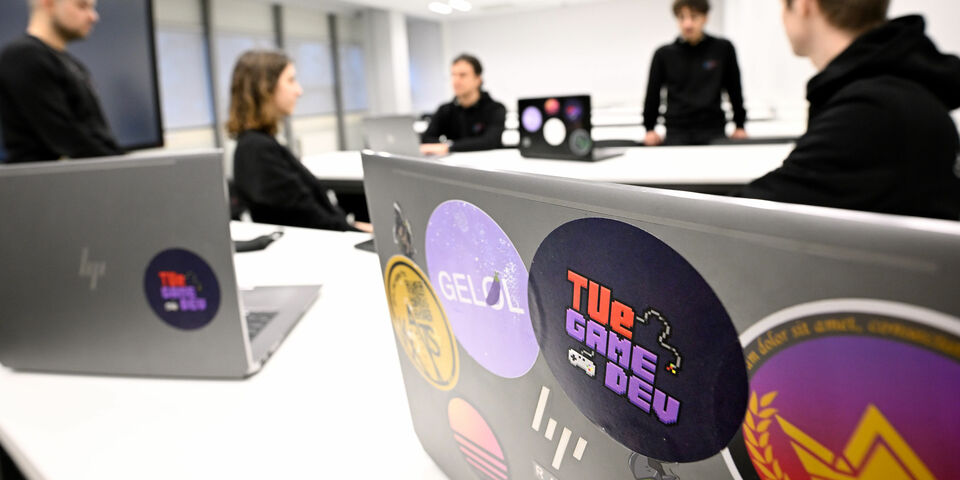TU/e Game Dev prepares students for gaming industry
TU/e Game Dev, the new student team from TU/e innovation Space, was established just a few months ago and already reached sixty members. That makes sense, founders and TU/e students Sanziana Tudose, Ongun Korkmaz and Jesse Traas say: “We’re clearly not the only ones who aspire to a career in game development.”
TU/e students Sanziana Tudose, Ongun Korkmaz and Jesse Traas were still in their teens when they started developing videogames in their spare time. They wanted to share their gaming experiences with others and bring the fantasy world inside their heads to life on a computer screen. Nevertheless, all three of them opted for Computer Science rather than a game development program. “Computer Science provides you with a broader knowledge that you can also use when you develop games,” Tudose says. Besides, a sole focus on game development isn’t a safe choice career wise, Traas says, whereas software developers generally have no trouble finding work.
Game jam
In order to remain focused on the world of gaming and to increase their chances of a career in game development, they decided to establish TU/e Game Dev. This student team serves as a community where students can hone their game development skills and make friends at the same time. Activities include workshops and game jams, during which students develop a game within two days. Game Dev also has two sub teams that work on larger projects over a period of several months.
The games produced by the teams will first be presented within TU/e, but above all, the plan is to bring students into contact with industry. “INDIGO, for example, is a major game showcase event organized by the Dutch Game Garden, which aims to support the Dutch gaming industry. That’s one potential platform for our teams to present their games,” Korkmaz says. “Or they can offer their concept to a company, which could possibly further develop it in collaboration with the team.” The size of the project is up to you to decide, according to Korkmaz. He himself already managed to secure a job at a start-up and recently emerged from his first official crunch session. Crunch time is a period during which people work around the clock to meet a deadline. “It caused a lot of stress, but we pulled it off in the end.”
The students are aware of the prevailing crunch culture within the gaming industry, where it is not uncommon for developers to work up to a hundred hours a week to meet deadlines, often without getting paid overtime. “That doesn’t stop me from wanting to work in game development,” Tudose says. “I feel too passionate about it. I do believe however that I would prefer to work for a small, independent company instead of a major game developer.”
Developing games is a time-consuming task even without crunch time. The students spend at least ten hours a week on it, alongside their studies. “Game development is challenging because it requires a multidisciplinary expertise. It’s not just about programming. Think of sound, for example, and the design of the game, and the story. That takes a lot of time,” Tudose says. “But it’s a hobby to us. And the student team only makes it more fun, because we work on it together.”
Thousands of euros
Tudose, Korkmaz and Traas now share all the knowledge they acquired in their own time with the other members of TU/e Game Dev. Still, they don’t consider themselves experts. Above all, they wish to share their passion and continue to learn. The idea, however, is that their student team will eventually grow into a company. Korkmaz: “Game developers spend thousands of euros on preparing new employees for entry-level jobs. We want to take that work off their hands.”
But that still lies in the distant future. The student team is currently still in a pilot phase. Nevertheless, the students have no doubt that TU/e Game Dev is moving towards a bright future. “The gaming industry continues to grow every day,” Korkmaz says. “Microsoft recently acquired Activision Blizzard for approximately sixty billion euros. Netflix and Facebook are also gearing up for expansion into the world of video games. TU/e should follow this trend. And we would be glad to offer a helping hand.”



Discussion